Art Tatum – Gershwin – The Man I Love (Piano) with sheet music
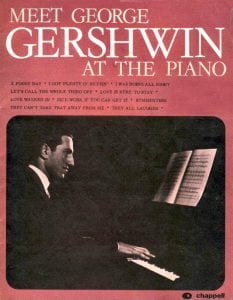
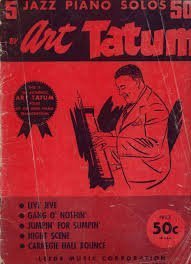
Art Tatum
Arthur Tatum Jr. (October 13, 1909 – November 5, 1956) was an American jazz pianist who is widely regarded as one of the greatest in his field.
Tatum grew up in Toledo, Ohio, where he began playing piano professionally and had his own radio program, rebroadcast nationwide, while still in his teens. He left Toledo in 1932 and had residencies as a solo pianist at clubs in major urban centers including New York, Chicago, and Los Angeles. Throughout his career, Tatum also played in after-hours venues at which he was said to be more spontaneous and creative than in his regular paid performances.
Art Tatum drank large quantities of alcohol when performing; although it did not negatively affect his playing, it damaged his health. In the 1940s, Tatum led a commercially successful trio for a short time and began playing in more formal jazz concert settings, including at Norman Granz-produced Jazz at the Philharmonic events. Granz recorded Tatum extensively in solo and small group formats in the mid-1950s, with the last session occurring only two months before the pianist’s death from uremia at the age of 47.
His playing encompassed the styles of earlier musicians, while adding harmonic and rhythmic imagination and complexity. Acclaimed for his virtuoso technique, Tatum extended the vocabulary and boundaries of jazz piano, and established new ground in jazz through innovative use of reharmonization, voicing, and bitonality.
Style and technique
Saxophonist Benny Green wrote that Tatum was the only jazz musician to “attempt to conceive a style based upon all styles, to master the mannerisms of all schools, and then synthesize those into something personal”. Tatum was able to transform the styles of preceding jazz piano through virtuosity: where other pianists had employed repetitive rhythmic patterns and relatively simple decoration, he created “harmonic sweeps of colour unpredictable and ever-changing shifts of rhythm.”
Musicologist Lewis Porter identified three aspects of Tatum’s playing that a casual listener might miss: the dissonance in his chords; his advanced use of substitute chord progressions; and his occasional use of bitonality (playing in two keys at the same time). There are examples on record of the last of these going back to 1934, making Tatum the farthest harmonically out of jazz musicians until Lennie Tristano.
On occasion, the bitonality was against what another musician was playing, as in “Lonesome Graveyard Blues” with guitarist Oscar Moore. Prior to Tatum, jazz harmony was mainly triadic, with flattened sevenths and infrequent ninths; he went beyond this, influenced by the harmonies of Debussy and Ravel. He incorporated upper intervals such as elevenths and thirteenths, and added tenths (and greater intervals) to the left-hand vocabulary of the earlier stride piano style.
Tatum had a different way of improvising from what is typical in modern jazz. He did not try to create new melodic lines over a harmonic progression; instead, he implied or played the original melody or fragments of it, while superimposing countermelodies and new phrases to create new structures based around variation. “The harmonic lines may be altered, reworked or rhythmically rephrased for moments at a time, but they are still the base underneath Tatum’s superstructures. The melodic lines may be transformed into fresh shapes with only a note or a beat or a phrase particle retained to associate the new with the original, yet the melody remains, if only in the listener’s imagination.”
This flexibility extended to his use of rhythm: he employed “ever-changing combinations of notes per beat even in the most rapid passages. He could apply different variation techniques simultaneously, and used subtle rhythmic intensification and relaxation to give clear identity and shape to his phrases.” His rhythmic sense allowed him to move away from the established tempo of a piece for extended periods without losing the beat.
For critic Martin Williams, there was also the matter of the pianist’s sly humor when playing: “when we fear he is reaching the limits of romantic bombast, a quirky phrase, an exaggerated ornament will remind us that Tatum may be having us on. He is also inviting us to share the joke and heartily kidding himself as well as the concert hall traditions to which he alludes.”
Prior to the 1940s, Tatum’s style was based on popular song form, which often meant two bars of melodic development followed by two more melodically static bars, which he filled with rapid runs or arpeggios.From the 1940s, he progressively lengthened the runs to eight or more bars, sometimes continuing them across the natural eight-bar boundaries within a composition’s structure, and began to use a harder, more aggressive attack.
He also increased the frequency of harmonic substitutions and the variety of musical devices played by his left hand, and developed a greater harmonic and contrapuntal balance across the piano’s upper and lower registers. Schuller argues that Tatum was still developing towards the end of his life – he had greater rhythmic flexibility when playing at a given tempo, more behind the beat swing, more diverse forms of expression, and he employed far fewer musical quotations than earlier in his career.
Critic Whitney Balliett commented on the overall form of Tatum’s style: “his strange, multiplied chords, still largely unmatched by his followers, his laying on of two and three and four melodic levels at once was orchestral and even symphonic.” This style was not one that could be adapted to the form of bebop: “the orchestral approach to the keyboard was too thick, too textured to work in the context of a bebop rhythm section.”
Tatum’s approach has also been criticized on other grounds: pianist Keith Jarrett objected to Tatum playing too many notes, and others have commented that Tatum often did not modify his playing when in a band.
A general criticism of him in a group setting was that he overwhelmed the other musicians, and appeared to compete with any soloist that he was ostensibly supporting. Clarinetist Buddy DeFranco said that playing with Tatum was “like chasing a train”, and the pianist himself said that a band got in his way.

A screen capture from the 1947 film The Fabulous Dorseys, showing Tatum’s straight-fingered technique
Tatum was serious at the keyboard, not attempting crowd-pleasing gestures, and he maintained a calm demeanor.This accentuated the impact of his playing on observers, as did his seemingly effortless technique, as fellow pianist Hank Jones observed – the apparently horizontal gliding of his hands across the keys stunned his contemporaries Tatum’s relatively straight-fingered technique, compared to the curvature taught in classical training, contributed to this visual impression: a critic wrote in 1935 that, when playing, “Tatum’s hand is almost perfectly horizontal, and his fingers seem to actuate around a horizontal line drawn from wrist to finger tip.”
Tatum was able to use his thumbs and little fingers to add melody lines while playing something else with his other fingers; drummer Bill Douglass, who played with Tatum, commented that the pianist would “do runs with these two fingers up here and then the other two fingers of the same hand playing something else down there. Two fingers on the black keys, and then the other two fingers would be playing something else on the white keys. He could do that in either hand”.
His large hands allowed him to play a left-hand trill with thumb and forefinger while also using his little finger to play a note an octave lower. He was also capable of reaching twelfth intervals in either hand, and could play a succession of chords such as the illustrated examples at high speed.He also had a strong sense of time and was able to play any of his chosen material in any key.

Examples of chords played by Tatum that “were easy for him to reach”
Tatum’s touch has also attracted attention: for Balliett, “No pianist has ever hit notes more beautifully. Each one was light and complete and resonant, like the letters on a finely printed page. Vast lower-register chords were unblurred, and his highest notes were polished silver.”Tatum could maintain these qualities of touch and tone even at the quickest tempos, when almost all other pianists would be incapable of playing the notes at all. Pianist Chick Corea commented that “Tatum is the only pianist I know of before Bill [Evans] that also had that feather-light touch – even though he probably spent his early years playing on really bad instruments.”
Among the musicians who said that Tatum could make a bad piano sound good were Billy Taylor and Gerald Wiggin The latter revealed that Tatum was able to identify and avoid using any keys on a bad piano that were not working, while guitarist Les Paul recounted that Tatum sometimes resorted to pulling up stuck keys with one hand, mid-performance, so that he could play them again.
Influence
Tatum’s improvisational style extended what was possible on jazz piano. The virtuoso solo aspects of Tatum’s style were taken on by pianists such as Adam Makowicz, Simon Nabatov, Oscar Peterson, and Martial Solal. Even “musicians of radically different outlook, such as Bud Powell, Lennie Tristano and Herbie Hancock, learnt key Tatum performances by rote, though few could compass his technical range or re-create his inimitable, plush tone.” Although Powell was of the bebop movement, his prolific and exciting style showed Tatum’s influence.Mary Lou Williams said, “Tatum taught me how to hit my notes, how to control them without using pedals. And he showed me how to keep my fingers flat on the keys to get that clean tone.”
Tatum’s influence went beyond the piano, however: his innovations in harmony and rhythm established new ground in jazz more broadly. He made jazz musicians more aware of harmonic possibilities by changing the chords that he used with great frequency; this helped lay the foundations for the emergence of bebop in the 1940s. He also pioneered modern chord voicing and chord substitution in jazz.
Browse in the Library:
| Artist or Composer / Score name | Cover | List of Contents |
|---|---|---|
| Alan Silvestri Contact Main Thitle Piano Solo |
 |
|
| Alan Silvestri The Avengers |
 |
Alan Silvestri The Avengers |
| Alan Walker – Faded |
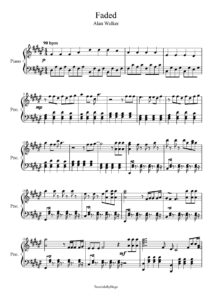 |
|
| Alan-Menken – Enchanted (Disney) |
 |
Enchanted Piano Vocal Guitar |
| Alanis Morisette – Hand In My Pocket | ||
| Alanis Morisette – Hands Clean | ||
| Alanis Morisette – Ironic | ||
| Alanis Morisette – Thank You | ||
| Alanis Morisette – That I Would Be Good | ||
| Alanis Morisette – Uninvited | ||
| Alanis Morisette – You Oughta Know | ||
| Alanis Morrissete You Oughta Know Sheet Music |
 |
|
| Alban Berg – Schliesse Mir Die Augen Beide (Musescore File).mscz | ||
| Alban Berg – Schliesse mir die Augen beide (Piano and voice Noten) |
 |
|
| Albeniz Isaac – Tango In D – Para Piano | Albeniz, Isaac – Tango In D – Para Piano | |
| Albeniz For Acoustic Guitar with Audio MP3 by Laurindo Almeida |
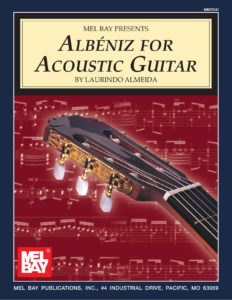 |
Albeniz for acoustic guitar with audio MP3 |
| Albeniz Suite Española V (Musescore File).mscz | ||
| Albéniz, Isaac – Capricho Catalán (Op. 165 no. 5) (Guitarra – Guitar) |
 |
|
| Albéniz, Isaac – Capricho Catalán (Op. 165 no. 5) (Piano) |
 |
|
| Albert Ammons 5 Boogie Woogie Piano Solos Sheet Music |
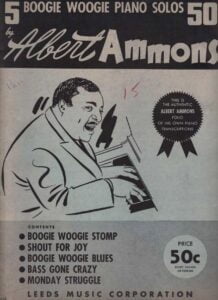 |
Albert Ammons 5 Boogie Woogie Piano Solos Sheet Music |
| Albert Ammons – Boogie Woogie Stomp |
 |
|
| Albert Ammons – Monday Struggle | Albert Ammons – Monday Struggle | |
| Albert Ammons – Shout For Joy | Albert Ammons – Shout For Joy | |
| Albert Ammons – Swanee River Boogie Woogie |
 |
|
| Albert Harris Sonatina Guitar Solo |
 |
|
| Albert Harris Variations And Fugue On A Theme Of Haendel (Guitar) |
 |
|
| Albert King The Very Best Of Albert King (Guitar TABs) |
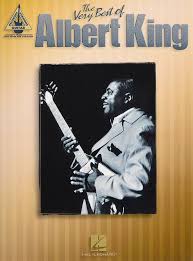 |
Albert King The Very Best Of Albert King |
| Albert Lee – The Best Of Albert Lee Guitar Tabs |
 |
Albert Lee – The Best Of Albert Lee Guitar Tabs |
| Albinoni – Adagio (Piano Solo Version) |
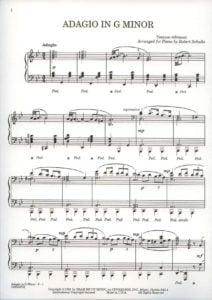 |
|
| ALBINONI-Adagio |
 |
|
| Album of Russian piano music | Russian music 1 | Russian music 2 |
| Album Of Scandinavian Piano Music By Louis Oesterle Vol. 1 (25 Pieces) 1902 |
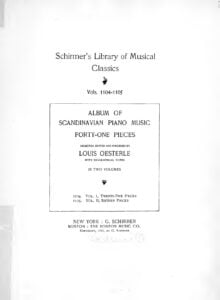 |
Album Of Scandinavian Piano Music By Louis Oesterle Vol. 1 (25 Pieces) 1902 |
| Alegre Magín – Americana (Guitarra) Habanera (Musescore File).mscz | ||
| Alegria Cirque Du Soleil Piano Vocal Guitar Chords Sheet Music |
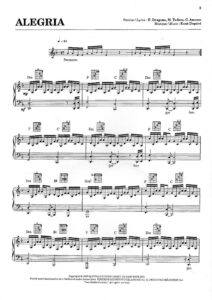 |
|
| Alejandro Sanz – Amiga Mia | ||
| Alejandro Sanz – La Margarita Dijo No | ||
| Alejandro Sanz – Y Si Fuera Ella | ||
| Aleksander Vertinskiy songbook |
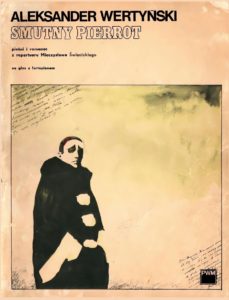 |
Aleksander Vertinskiy songbook |
| Alex North – Spartacus Love Theme (piano sheet music) |
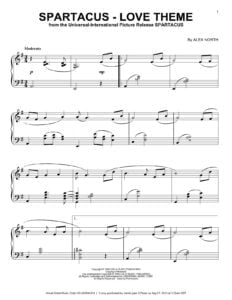 |
Alex North Spartacus Love Theme |
| Alex North Spartacus Love Theme (Lead sheet) | Alex Norrth SpArtacus | |
| Alexander Scriabin 24 Preludes Op. 11 1 To 12 Musescore File.mscz | ||
| Alexandra Streliski Burnout Fugue |
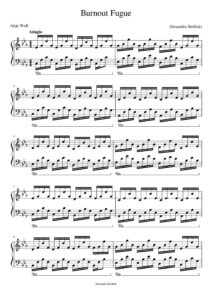 |
|
| Alexandra Streliski Le Noveau Dèpart |
 |
|
| Alexandra Streliski Par La Fenêtre De Théo |
 |
|
| Alexandra Streliski Plus Tôt |
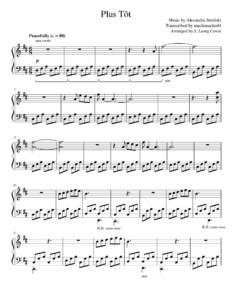 |
|
| Alexandra Strevisky Pianoscope |
 |
Alexandra Strevisky Pianoscope |
| Alexandre Desplat Elisas Theme Piano from The shape of water |
 |
|
| Alexandre Desplat The Shape Of Water Main Theme |
 |
|
| Alexandre Desplat – Lust Caution |
 |
Alexandre Desplat – Lust Caution |
| Alexandre Desplat – The Imitation Game |
 |
|
| Alexandre Desplat – The Meadow New Moon Piano solo Sheet Music |
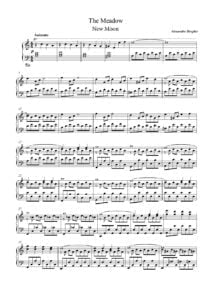 |
|
| Alexandre Desplat Almost A Kiss (From The Film New Moon) |
 |
|
| Alexandre Desplat and Lang Lang Kitty,s Theme from The Painted Veil | Alexandre Desplat and Lang Lang Kitty,s Theme from The Painted Veil | |
| Alexandre Desplat Brunos Theme From Suite Fran?aise |
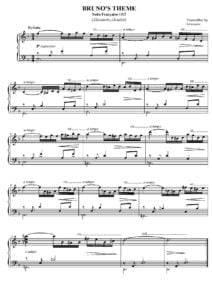 |
|
| Alexandre Desplat Full Moon (From The Film New Moon) |
 |
|
| Alexandre Desplat My Week With Marilyn – Marilyn’s Theme |
 |
|
| Alexandre Desplat Ost Godzilla Main Theme |
 |
|
| Alexandre Desplat The Danish Girl Theme Piano Solo |
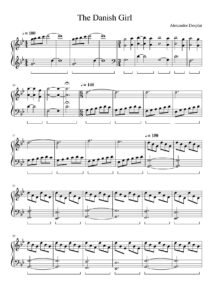 |
|
| Alexandre Desplat The Imitation Game |
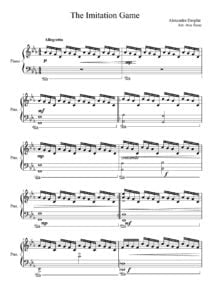 |
|
| Alexandre Desplat The King Speech |
 |
Alexandre Desplat The King Speech |
| Alexandre Desplat The Power Plant from Godzilla |
 |
|
| Alexandre Desplat The Wonder Of Life |
 |
|
| Alexandrov Piano Works Vol I |
 |
|
| Alexandrov Works for Piano Vol II |
 |
|
| Alexandrov Works for Piano Vol III Sonatas |
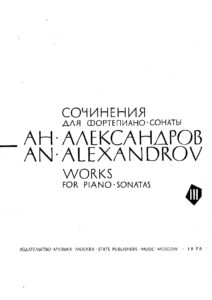 |
|
| Alexandrov, Anatoly 6 Preludes For Piano Op. 1 (1961) |
 |
|
| Alexis Ffrench – Bluebird |
 |
|
| Alfred Basic Adult Christmas Book Level 1 |
 |
|
| Alfred Basic Repertoire Level 4 |
 |
|
| Alfred Brendel A Pianists A-Z A Piano Lovers Reader Book |
 Andrew Hill 21 Piano Compositions Andrew Hill 21 Piano Compositions |
|
| Alfred’s Basic Adult Piano Course Level 1 |
 |
Lessons Alfred’s Basic Adult Piano Course Level 1 |
| Alfred’s Basic Adult Piano Course Level 2 |
 |
Lessons Alfred’s Basic Adult Piano Course Level 2 |
| Alfred’s Basic Adult Piano Course Level 3 |
 |
Lessons Alfred’s Basic Adult Piano Course Level 3 |
| Alfred’s Basic Piano Level 2B |
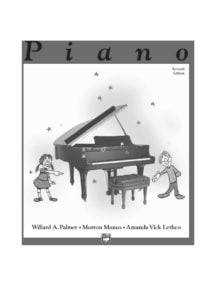 |
|
| Alfred’s Basic Piano Level 4 Jazz Rock Course |
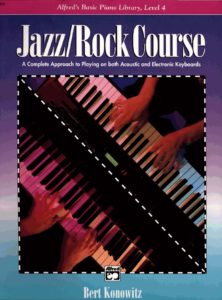 |
|
| Alfred’s Basic Piano Library Essentials Of Jazz Theory Book 2 |
 |
Alfred’s Basic Piano Library Essentials Of Jazz Theory Book 2 |
| Alfred’s Basic Piano Library – Solo Book Complete Levels 2 & 3 for the later beginner |
 |
Alfred’s Basic Piano Library – Solo Book Complete Levels 2 & 3 for the later beginner |
| Alfred’s Basic Piano Library – Top Hits! Solo Book – Level 4 |
 |
|
| Alfred’s Basic Piano Library Essentials Of Jazz Theory Book 1 |
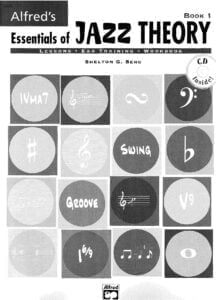 |
Alfred’s Basic Piano Library Essentials Of Jazz Theory Book 1 |
| Alfred’s Basic Piano Library Essentials Of Jazz Theory Book 3 |
 |
Alfred’s Basic Piano Library Essentials Of Jazz Theory Book 3 |
| Alfred’s Basic Piano Library Lesson Book Level 3 |
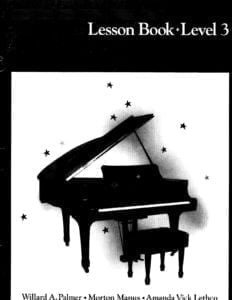 |
|
| Alfred’s Teach Yourself To Play Guitar Everything You Need To Know To Start Playing The Guitar! (with Tablature) |
 |
|
| Alfred’s Essentials Of Music Theory, Complete (Andrew Surmani, Karen Farnum Surmani Etc.) Sheet Music |
 |
|
| Ali and Nino (Dario Marianelli) | ||
| Alice Coltrane Monument Eternal (book) The Music of – by Franya J. Berkman |
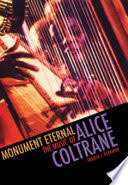 |
|
| Alice In Chains Dirt Full album Guitar TAB with lyrics |
 |
Alice In Chains Dirt Full album Guitar TAB with lyrics |
| Alicia Keys – A Woman’s Worth | Alicia Keys – A Woman’s Worth | |
| Alicia Keys – A Womans Worth | ||
| Alicia Keys – And I | ||
| Alicia Keys – As I Am (Songbook) |
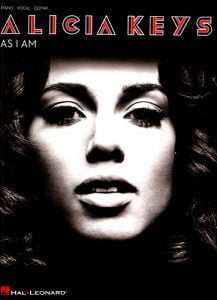 |
ALICIA KEYS SONGBOOK |
| Alicia Keys – Butterflyz | ||
| Alicia Keys – Diary | ||
| Alicia Keys – Fallin | ||
| Alicia Keys – Fallin’ (Sheet Music – Piano) | Alicia Keys – Fallin’ (Sheet Music – Piano) | |
| Alicia Keys – Goodbye | ||
| Alicia Keys – How Come You Dont Call Me | ||
| Alicia Keys – If I Aint Got You |
 |
|
| Alicia Keys – Impossible | ||
| Alicia Keys – Never Felt This Way | ||
| Alicia Keys Diary Song Book |
 |
ALICIA KEYS DIARY SONGBOOK |
| Alicia Keys The Element Of Freedom Songbook |
 |
ALICIA KEYS |
| Alicia Keys Unplugged |
 |
ALICIA KEYS UNPLUGGED |
| Alkan, Charles Valentin Concerto For Solo Piano 1st Movement Opus 39 No. 8 In G Minor (Piano Solo Reduction) |
 |
|
| All 4 One – I Can Love You Like That | ||
| All 4 One – I Swear | ||
| All American Folk Complete Sheet Music Editions Volume One (Creative Concepts Publishing Corp.) |
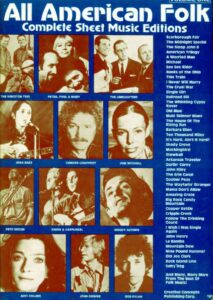 |
All American Folk Complete Sheet Music Editions Volume One (Creative Concepts Publishing Corp.) ( |
| All Blues For Jazz Guitar Comping Styles Chords And Grooves by Jim Ferguson Guitar Tablature |
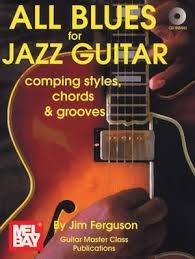 |
All Blues For Jazz Guitar Comping Styles Chords And Grooves by Jim Ferguson Guitar Tablature |
| All Blues Soloing For Jazz Guitar – Jim Gerguson Play Along (Book + audio MP3) with Tablature |
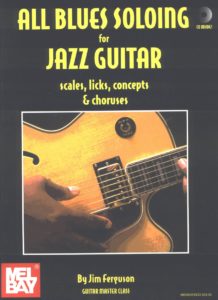 |
All Blues Soloing jazz guitar |
| All By Myself – Celine Dion (Musescore File).mscz | ||
| All I Want For Christmas Is You (Musescore File).mscz | ||
| All Of Me – Jazz Standard Stride Piano arr. Gerald Marks and Seymour Simons | All of me (Gerald Marks and Seymour Simons) Jazz Piano Solo arr. sheet music | |
| All Of Me – Jazz Standard Stride Piano Arr. Gerald Marks And Seymour Simons (Musescore File).mscz | ||
| All Of Me Fingerstyle Guitar TABs By Lucas Brar Jazz Standard (Gerald Marks and Seymour Simons) | All Of Me Fingerstyle Guitar TABs By Lucas Brar Jazz Standard | |
| All Of Me Gerald Marks & Seymour Simons 1931 Jazz Standard (Vintage sheet music) | All Of Me Gerald Marks & Seymour Simons 1931 Jazz Standard (Vintage sheet music) | |
| All Of The Jazz Standard Vol. 1 |
 |
All Of The Jazz Standard Vol. 1 |
| All Of The Jazz Standard Vol. 2 |
 |
All Of The Jazz Standard Vol. 2 |
| All Saints – Never Ever | ||
| All Sondheim Vol I Music and lyrics |
 |
All Sondheim Vol I Music and lyrics |
| All Sondheim Vol II Music and lyrics |
 |
All Sondheim Vol II Music and lyrics |
| All Sondheim Vol III Music and lyrics |
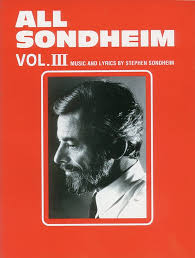 |
All Sondheim Vol III Music and lyrics |
